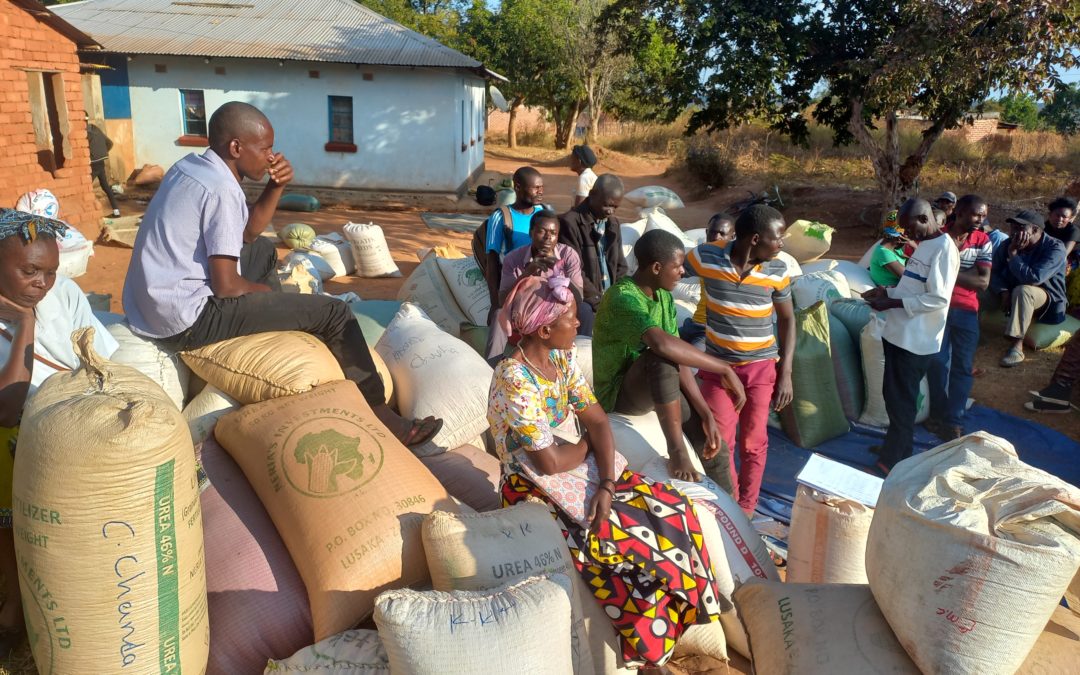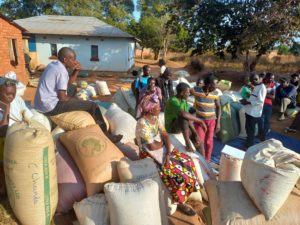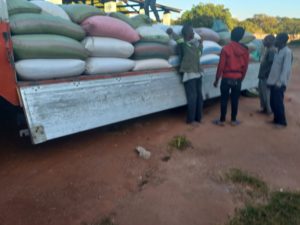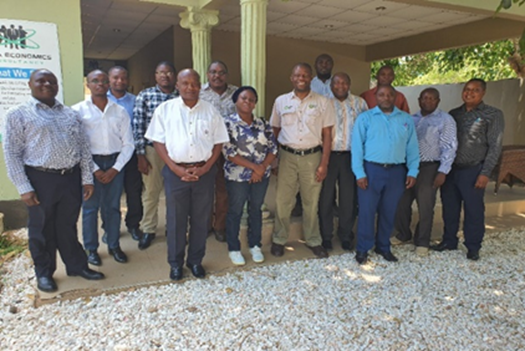By Mulube Mwiinga , Rachel Muthoni Andriatsitohaina, and Wilson Nkhata.
The Zambian bean sector has been on a growth spurt for the past couple of years. The increase in partnerships with value chain actors, Zambian farmers bean yield was very low averaging about 0.45 ton/ha which was mostly consumed at home, The grain quality was equally poor. Zambia Agricultural Research Institute (ZARI) introduced improved bean varieties which are high yielding, disease resistant and early maturing. In partnership with other value chain actors, farmers were trained on the improved bean technologies and production techniques including good agricultural practices and post-harvest management. The trainings were set up on fare and practically offered on a peer-to-peer farmer learning. These interventions by ZARI and PABRA led to an improvement in bean productivity and grain quality among farmers. The yield improved from an average of 0.45 tons/ha to over 0.8 tons /ha. Available market by Blue Oak Agro Limited (BOA) encouraged farmers to improve their grain quality by taking up new improved bean varieties and to increase production of premium grain,productivity, consistent volumes and good quality.
Since 2014, Blue Oak Agro limited has been in business trading high quality agricultural commodities, supplying inputs and rendering brokerage services to a wider range of clientele in the agricultural sector. Blue Oak also takes interest in setting up out grower schemes to grow specific crops of commercial value with partners of which common bean is one of the commodities. The companies’ core business is brokerage, trading in agricultural commodities and provision of consultancy services with an ultimate goal of becoming bigger, better and stronger through relentless perfection by continuously providing excellent commodities and services to consumers.
In 2015, the farm gate price was k7/kg (US$ equivalent) and following an improvement in the quality of the grain, BOA bought at K20/kg in 2021 as an incentive on premium to the farmers. Equally the consistence in market has greatly improved the income and livelihoods of farmers. The farmers’ group members are now able to buy their own seed and some have even gone further to build houses with iron sheets, buy bicycles, solar panels, TVs, radios and vehicles to mention but a few.
In the Zambia bean value chain, Blue Oak Agro is a grain off-taker specializing in sugar beans, Kabulangeti and red mottled market classes. The company buys bean grain for further selling to large trading companies in the country and outside. In 2015, while employing only 10 permanent employees, the company was only able to aggregate and trade with 30 metric tons annually. The company used to source the bulk of the bean grain from Soweto market in Lusaka, which is the largest inform market for bean grain in the country. Sourcing beans from the mentioned market came with challenges such as add mixtures, poor quality and inconsistent quantities of the market classes of interest. Due to these challenges especially quality and quantity, the company couldn’t penetrate the international market but however concentrated trading with local traders and processers among others; Good Nature Agro, Novatek, Shais foods, farmers barn and Silva foods. The company has expanded its business and revenues and is now employing over 20 permanent workers.
In 2019, during the implementation of the TAZAMA bean corridors concept, ZARI/PABRA identified Blue Oak Agro as one of the players in the consumption hub. At the time, employing 10 permanent workers and facing challenges of poor grain quality and inconsistent quantities. ZARI/PABRA invited BOA to an annual bean business meeting an initiative under the bean corridors approach, where both grain and seed off-takers indicate their focused quantities for the next season.
BOA partnership with farmer groups in Zambia based in the northern province of Kapatu resulted in improved yields. This marked the beginning of a long-term partnership towards improved grain quality and increasing trading volumes for BOA. ZARI’s role was to provide capacity of farmers in bean production, good agricultural practices, and provision of good quality bean seed, while the role of BOA was bought from farmers corporative. BOA bought seeds needed by the market from the farmer groups which are mostly sugar bean, red mottled and Kabulangeti. by 2020, BOA improved their tradable volumes from 30 metric tons annually to over 300 metric tons of premium grain. These beans are currently sold in SADC markets in South Africa, Angola, Namibia and Botswana selling to bulk traders such as United African grain, CHC commodities and African Deli.




